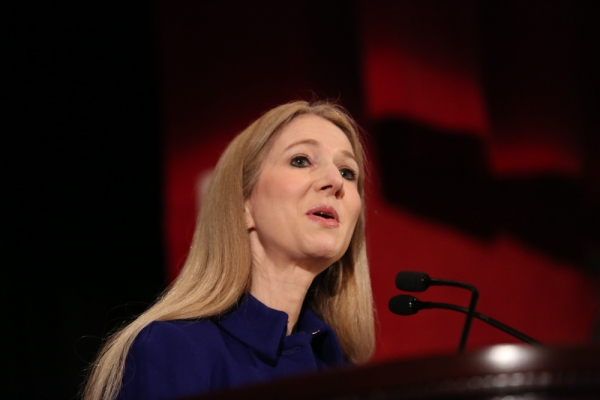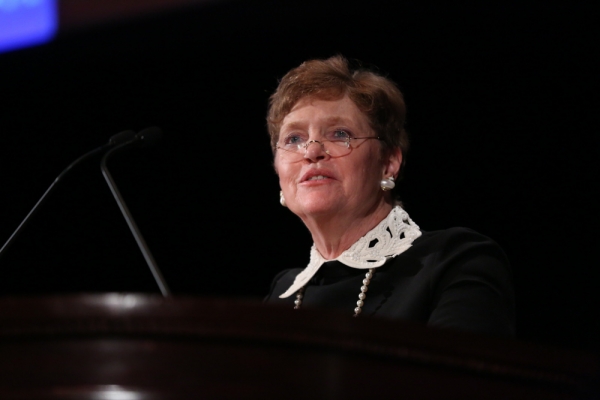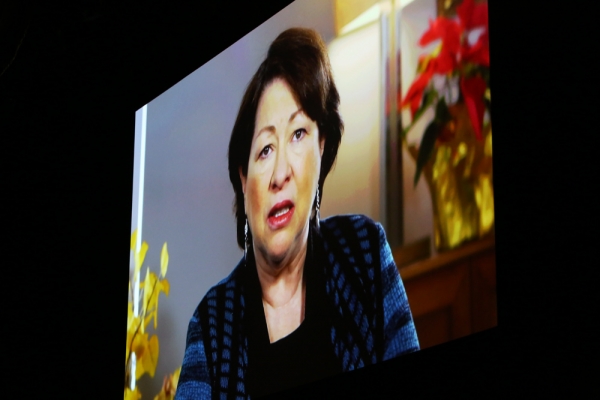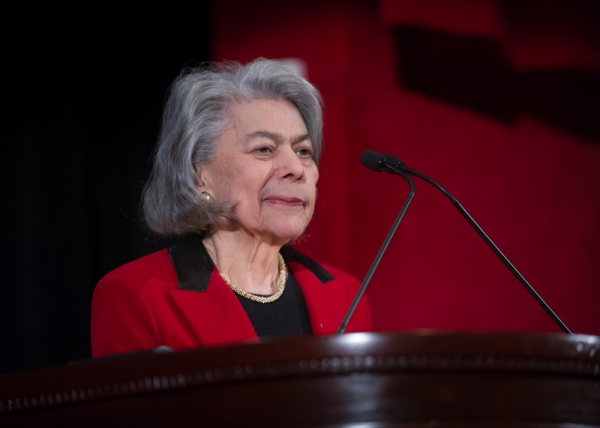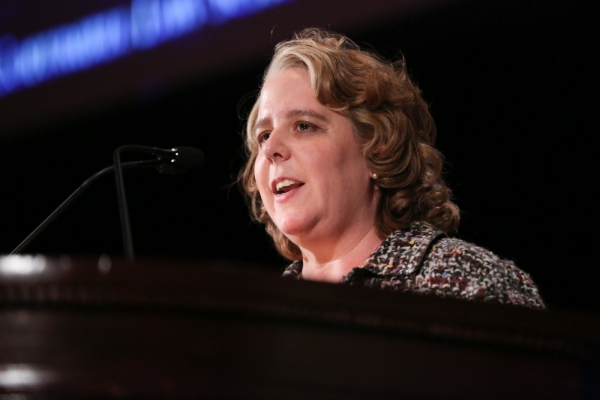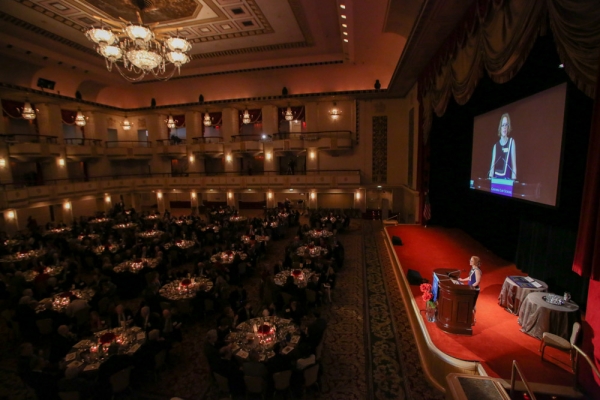Medal for Excellence Awarded to Miriam Goldman Cedarbaum ’53 and Roberta A. Kaplan ’91
Honorees Selected for Exemplary Qualities of Character, Intellect, and Social and Professional Responsibility
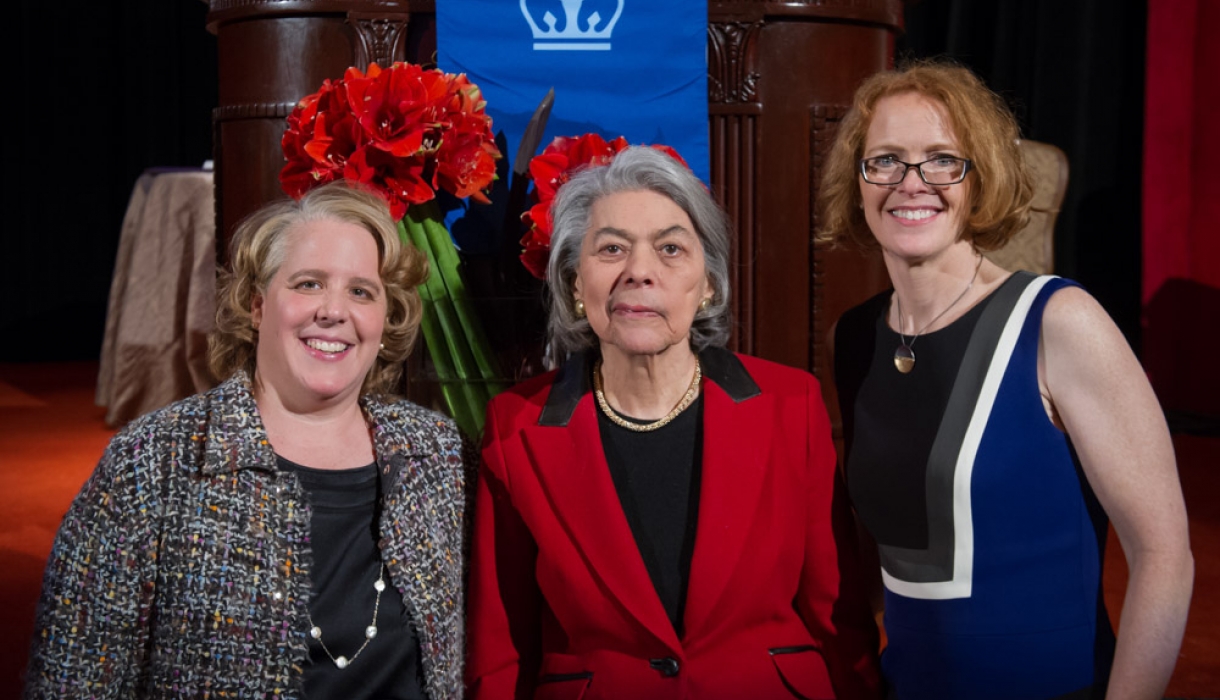
Cedarbaum, who has served on the bench in the Southern District of New York for 29 years, said the Law School helped guide her career path and professional development.
Kaplan, a powerhouse litigator known for winning the landmark U.S. Supreme Court ruling striking down a provision of the federal Defense of Marriage Act (DOMA) that banned recognition of same-sex marriages, was welcomed to the stage after a warm introduction from her longtime friend McMahon, a mentor and fellow Ohioan.
Kaplan said Columbia Law School helped her fulfill a dream of becoming a New York attorney. She said she hoped her 2013 representation of lesbian Edith Windsor in the DOMA case would help people fight off any cynicism toward the law.
